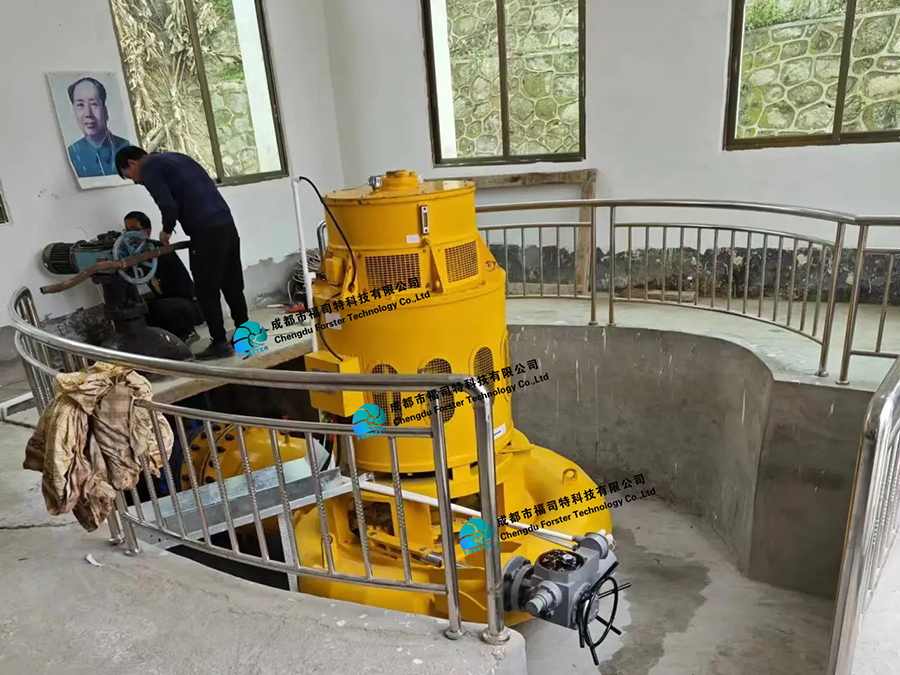Advantages of hydropower
1. Regeneration of water energy
Water energy comes from natural river runoff, which is mainly formed by natural gas and water circulation. Water circulation makes water energy renewable and recyclable, so water energy is called “renewable energy”. “Renewable energy” has a unique position in energy construction.
2. Water resources can be comprehensively utilized
Hydroelectric power only uses the energy in the water flow and does not consume water. Therefore, water resources can be comprehensively utilized. In addition to power generation, they can also benefit from flood control, irrigation, shipping, water supply, aquaculture, tourism and other aspects, and carry out multi-objective development.
3. Regulation of water energy
Electric energy cannot be stored, and production and consumption are completed at the same time. Water energy can be stored in the reservoir, which is produced according to the requirements of the power system. The reservoir is equivalent to the energy storage warehouse of the power system. The regulation of the reservoir improves the regulation ability of the power system to the load, and increases the reliability and flexibility of the power supply.
4. Reversibility of hydropower generation
The water at high places can be led to the water turbine at low places for power generation, and the water energy can be converted into electric energy; On the other hand, the water body at the lower level will absorb the electric energy of the power system through the electric pump and send it to the reservoir at the higher level for storage, which will convert the electric energy into water energy. Using the reversibility of hydropower to build pumped-storage power stations has a unique role in improving the load regulation capacity of the power system.
5. Flexibility of unit operation
The unit equipment of hydropower generation is simple, flexible and reliable, and it is very convenient to increase or decrease the load. It can be quickly started or stopped according to the needs of users, and is easy to realize automation. It is most suitable for undertaking the peak shaving and frequency modulation tasks of the power system, as well as the emergency standby, load adjustment and other functions, which can increase the reliability of the power system, with outstanding dynamic benefits. The hydropower station is the main bearer of the dynamic load of the power system.
6. Low cost and high efficiency of hydropower production
Hydroelectric power generation does not consume fuel and does not require a large number of manpower and facilities invested in mining and transporting fuel. The equipment is simple, with few operators, less auxiliary power, long service life of the equipment, and low operation and maintenance costs. Therefore, the cost of electricity production of hydropower stations is low, only 1/5~1/8 of that of thermal power stations, and the energy utilization rate of hydropower stations is high, up to 85%, while the coal-fired thermal efficiency of thermal power stations is only about 40%.
7. It is conducive to improving the ecological environment
Hydroelectric power generation does not pollute the environment. The vast water surface area of the reservoir regulates the microclimate of the region, adjusts the temporal and spatial distribution of water flow, and is conducive to improving the ecological environment of the surrounding areas. However, coal-fired power plants need to emit about 30Kg of SO2 per ton of raw coal, and more than 30Kg of particulate dust. According to the statistics of 50 large and medium-sized coal-fired power plants in the country, 90% of the power plants emit more than 860mg/m3 of SO2, which is very serious. Today, more and more attention is paid to the world’s environmental problems. It is of great significance to speed up the construction of hydropower and increase the proportion of hydropower in China to reduce environmental pollution.

Disadvantages of hydropower
Large one-time investment – huge earthwork and concrete works for the construction of hydropower stations; In addition, it will cause considerable inundation losses, and huge resettlement costs must be paid; The construction period is also longer than the thermal power plant construction, which affects the construction capital turnover. Even if some of the investment in water conservancy projects is shared by the beneficiary departments, the investment per kilowatt of hydropower is much higher than that of thermal power. However, in the future operation, the annual operation cost savings will be compensated year by year. The maximum allowable compensation period is related to the national development level and energy policy. If the compensation period is less than the allowable value, it is reasonable to increase the installed capacity of the hydropower station.
Risk of failure – due to flood, the dam blocks a large amount of water, natural disasters, man-made damage, and construction quality, which may have disastrous consequences for downstream areas and infrastructure. Such failures may affect power supply, animals and plants, and may also cause great losses and casualties.
Ecological system destruction – large reservoirs cause large areas of inundation at the upstream of the dam, sometimes destroying lowlands, valley forests and grasslands. It will also affect the aquatic ecosystem around the plant. It has a great impact on fish, water birds and other animals.
Post time: Feb-21-2023
